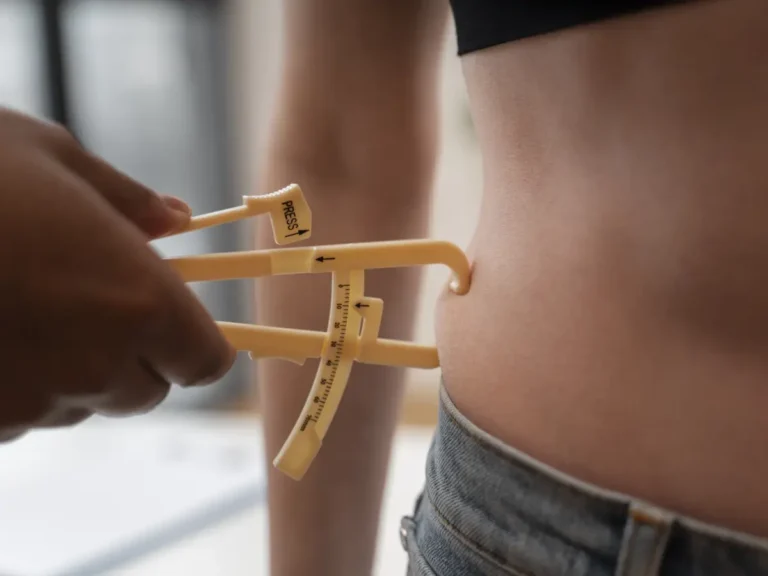When your weight is threatening your health and all attempts to lose weight have failed, bariatric surgery may be the best solution. Bariatric surgeries affect the way your digestive system, especially your stomach, works.
The two common types are gastric sleeve surgery and gastric bypass surgery, both known as weight loss surgery options.
Although both aim to help you lose weight, they have distinct differences. Let’s explain the difference between gastric bypass and gastric sleeve so you can better discuss your options with your doctor.
Surgical weight loss procedures
Gastric sleeve surgery reduces the size of the stomach by up to 80%, which helps with weight loss. This surgery is usually minimally invasive and involves small incisions and a laparoscope. The surgeon performs keyhole surgery and makes small incisions.
Then a thin tube with a camera and surgical instruments is inserted to operate with precision. The stomach is divided, leaving 20% and removing 80%. The surgeon removes the excess stomach material.
The remaining stomach is then sewn together to create a smaller, tube-shaped stomach. This is about 25% of its original size.
Gastric bypass creates a small stomach pouch and reroutes part of the stomach and small intestine, reducing fat absorption.
The surgeon makes a small pouch in the stomach and connects it to the small intestine. This bypasses the duodenum, reducing fat absorption.
The procedure may be minimally invasive or require open surgery.

Gastric Sleeve vs. Gastric Bypass: Benefits & Risks
Benefits of Gastric Bypass:
- Effective weight loss with patients losing 60-80% of their excess weight in the first year.
- Improvement of medical conditions such as type 2 diabetes, high blood pressure, sleep apnea and high cholesterol.
- Rapid results that boost energy, mobility and confidence.
- Long-term success for up to 10 years after surgery.
Benefits of Gastric Sleeve:
- Weight loss with patients typically losing 50-70% of their excess weight in the first year.
- Fewer complications as it is a simpler procedure compared to gastric bypass.
- Lower risk of developing nutrient deficiencies.
- Patients can maintain their weight loss results for up to 5 years after surgery.
Most surgeries, including weight loss surgeries, carry risks and potential complications. Here’s what you need to know about potential problems from weight loss surgery:
Risks of Gastric sleeve:
- Acid reflux
- Stomach fluid leakage
- Stomach blockage
- Gastric pouch tightening
Risks of Gastric bypass:
- Stomach ulcers
- Increased sensitivity to alcohol
- Stomach perforations
- Intestinal blockage
Gastric Bypass Surgery Vs. Sleeve Recovery Times

Gastric sleeve surgery and gastric bypass surgery require a recovery period, and in some cases some pain may remain. There are also restrictions that you must follow.
Gastric Sleeve Surgery
The recovery period after gastric sleeve surgery varies from person to person and depends on how quickly you adjust to eating fewer calories. Most patients can return to normal activities within four weeks.
Gastric Bypass Surgery
During the recovery period after gastric bypass surgery, moderate pain is normal for the first few days and you will be given prescription pain medication to help you manage the pain at home.
Most people are able to stop taking prescription pain medication within a week.
You will need to avoid strenuous exercise for up to 6 weeks and will be given instructions on what you can eat after surgery.
You will be asked to follow a liquid diet at first and will eventually begin adding protein and soft foods to your diet.
Gastric Sleeve vs. bypass cost
The average cost of gastric sleeve surgery in turkey is $3,000,. The average cost of gastric bypass surgery is $4,500.
Factors that affect the cost of Bariatric surgery include:
several key factors influence the final price: the experience and credentials of your bariatric surgeon more experienced specialists often charge higher fees, your geographic location prices vary significantly between cities and regions, and the length of your hospital stay longer recoveries requiring additional monitoring will increase overall costs.
Gastric sleeve vs gastric bypass long-term

Gastric sleeve:
- Results in significant weight loss, usually around 60-70% of excess body weight.
- Generally, maintains better absorption of nutrients than gastric bypass because it does not alter the normal food pathway.
- Simpler procedure with fewer long-term complications related to rerouting the digestive tract.
- Easier to transition to a regular diet over time.
Gastric bypass:
- Results in significant weight loss, usually around 70-80% of excess body weight.
- This can cause malabsorption of some nutrients, requiring lifelong supplements.
- More complicated because the digestive tract is rerouted, which can lead to more long-term complications.
- Patients usually follow a diet similar to gastric sleeve but require extra attention to prevent nutritional deficiencies.
Gastric sleeve or bypass: which is better?
The choice between gastric sleeve and gastric bypass depends on factors such as your health, weight loss goals, and preferences.
Gastric sleeve surgery reduces the size of the stomach by removing part of it. Gastric bypass surgery changes the nature of the digestive system to control the amount of food the body takes in and absorbs.
get a free consultation.
At Medconsulto, we offer fully inclusive fee packages. These packages cover all services related to the surgery, including hospital fees, surgeons’ fees, anesthesiologists’ fees, and aftercare policies.
FAQ
How long is the recovery time for each procedure?
Gastric sleeve recovery is typically 2-3 weeks, while gastric bypass usually requires 3-4 weeks before returning to normal activities.
Which procedure is safer?
Gastric sleeve is generally considered safer with fewer complications as it’s less complex and doesn’t reroute the digestive system.
Can diabetes be reversed with either surgery?
Both can improve diabetes, but gastric bypass tends to show faster and more significant diabetes remission rates (80-85%) compared to sleeve (60-70%).
Can you switch from gastric sleeve to gastric bypass later?
Yes, a gastric sleeve can be converted to bypass if needed for additional weight loss or to address complications like severe acid reflux.
Resources






